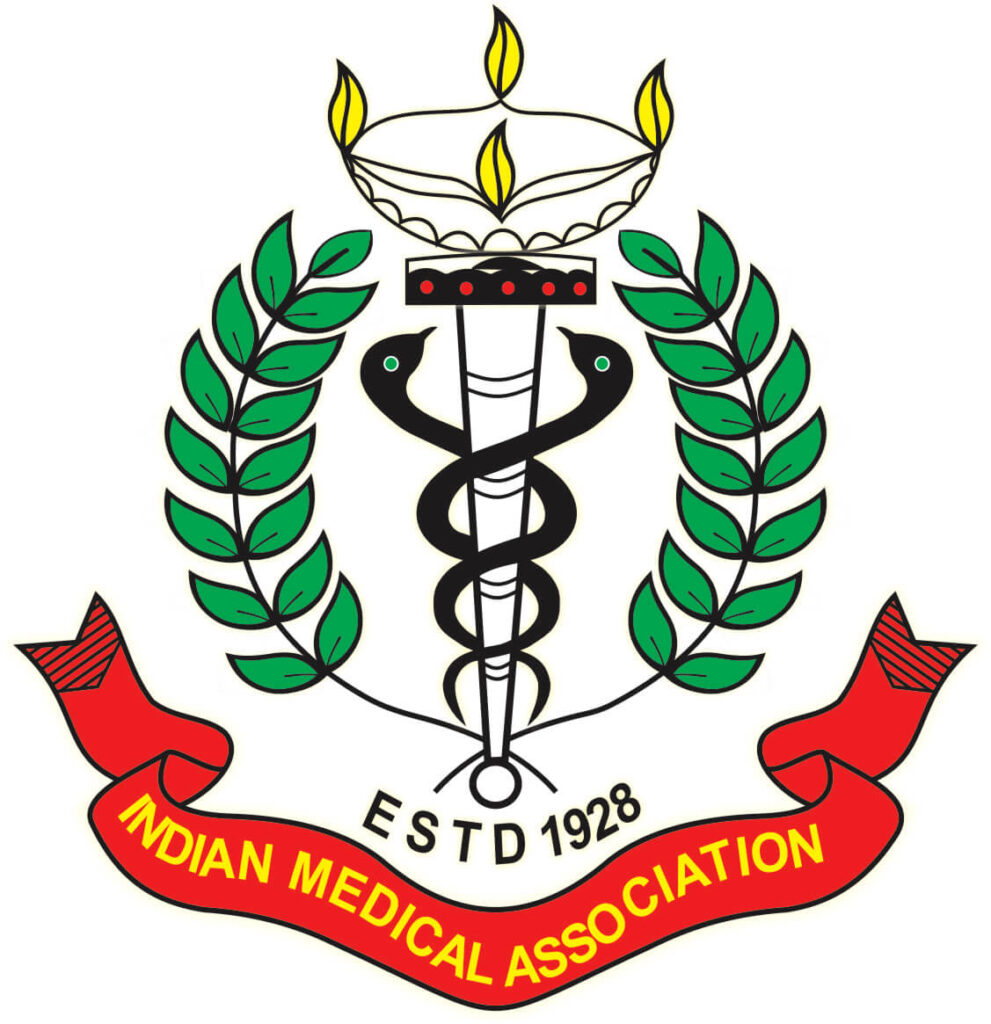EDITORIAL
SUICIDE PREVENTION AMONG DOCTORS: THE NEED OF THE HOUR
Dr Arun B Nair1
The National Crime Records Bureau statistics of the year 2022 has been released recently and it shows alarming statistics regarding suicide rate in the state of Kerala. Kerala has been documented to have a suicide rate of 28.8 per 1,00,000 population last year. 10,162 people have lost their lives to suicide in the calendar year 2022. This is a 19.7 percentage increase from the previous year 2021.
What is most alarming and distressing is that quite a large number of doctors have also ended their own lives in the recent years. This includes junior residents, senior residents and even senior consultants who were much respected and doing extremely well in their professional sphere. Despite earnest efforts to decipher its nuances, suicide still continues to be an enigma which the medical world or even the population at large has not fully comprehended.
Why doctors?
- As each and every one of you may accept, medical profession is one of the most stressful locations anybody could possibly undertake in their life. The challenges of the profession include managing work life balance ensuring a good night’s sleep, lack of social connectivity and keeping oneself updated with the recent advances in his speciality of practice. The stress and strain of medical practice starts before one becomes enrolled in a medical school. The intense competition for medical entrance coaching is the index point from which the stress and strain starts mounting in the life of a medical seat aspirant. Even after getting the coveted medical seat, the stress and strain remains because as we all know undergraduate medical course is one of the most difficult academic courses anybody can pursue in life. Even after becoming a medical graduate the attitude of the society around doctors does not allow them to rest. The struggle for getting into a postgraduate course of your choice and the unparalleled strain of work during the junior residency days add on to the stress and strain of everyday life. Even after becoming a specialist, the journey does not end. Further attempts to get into super speciality and after that getting into fellowships which could sharpen your clinical skills may extend to decades. Once the academic pursuit is complete, does the life become a bed of roses? Definitely not. The intense competition to establish yourself as a specialist of repute is going to eat into your personal space as well. The biggest tragedy is that, in the course of these academic pursuits, you lose contact with many of your friends and even your family. The network of support which is expected to help you during times of crisis gets withered away and after so many years of toiling hard to make it big as a clinician, you may realize with a heavy heart that you are probably alone at the top. Your patients consider you as a superhuman who is capable of serving them even at midnight after working for 16 hours a day. The fact that every doctor, however hard working or competent he is, needs sufficient rest to rejuvenate his brain and mind so that he can serve the public effectively on the next day also, is the fact that the common man finds very hard to digest.
- The lack of effective socialization is another problem that is taking a toll on the mental state of doctors. Support groups of doctors, who can effectively identify and intervene the issues of fellow professionals, is a part of the work culture of many organizations in the west. Unfortunately, even big hospitals in our part of the world, lack such an internal support system which could go a long way in preventing suicides among medical professionals.
- Most medical professionals refrain from pursuing hobbies or other creative activities as a consequence of workload. This is something which could definitely affect their mental state adversely in the long run.
- Lack of effective communication in their family is also a common reality in the life of medical professionals, again thanks to the hectic work schedule.
What is the solution?
Empowering doctors to manage stress, enhance wellness, balance work and personal life, to identify red flag signs of distress and to practice mental health first aid are some of the key suggestions which may work well in this context. Doctors by nature, are poor patients. They may not regularly follow up with another clinician regarding their own health problems. They may not talk openly about their personal problems to anyone else. The stigma regarding mental illnesses and taking treatment for them is very strongly embedded in the minds of doctors as well, making them hesitant to take timely help for stress related mental health problems. Some suggestions to overcome these problems include- Doctors should take responsibility to manage their own stress. Developing healthy friendships, spending time to explore your creative streak, involving in healthy hobbies, regular exercise, practising relaxation exercises, and opening up to a close person in times of distress help a lot.
- Be aware of changing scenarios in life and clinical practice and try adapting to those. Managing generation gap related issues with children, handling subordinates positively, trying to learn new things non-judgmentally, mentoring young professionals etc. can go a long way in achieving these.
- Manage your time effectively and take care of yourself. Spending at least seven hours per day for good quality sleep is absolutely necessary in maintaining wellness and managing stress. Give priority to urgent and important things in life. Avoid wastage of time including spending excessive time on social media and engaging in inconsequential online arguments.
- Find a purpose in life. Unless you have a long-term purpose or philosophy in life, you may find it difficult to adapt to hardships. Be aware of yourself with all your potential and limitations, utilise your potential to the maximum, remember to provide benefits to maximum people in the process, there by generating tremendous good will in their minds about you, and become aware of each moment in your life. Practise mindfulness so that you can engross yourself in each and every moment of life in a non-judgement way. Be grateful for all the good things you have in life.
- Understanding your limitations and boundaries. Never try to be a superhuman who is simultaneously engaging in a multitude of activities without rest or sleep. Every human has his limitations and it is important to understand and honour yours.
- Always believe in and practise good team work. No one grows in isolation. It is always good to grow as a team, and not be isolated at the top. Discuss about major issues at workplace with trustworthy colleagues, take second opinion for tough clinical scenarios and be open in communication.
- Learn and practice the art of professionalism. This includes reaching workplace on time, to keeping appointments promptly to managing interpersonal issues between team members. Try not to vent out anger at workplace, either to colleagues or patients. Try to master the “art of anger control” and develop healthy alternative strategies.
- Try to develop the art of “smart work” than “hard work.” Structured document keeping, getting the services of an assistant and prioritising work schedule can help a long way in making life less miserable.
- Be a lifelong learner. The practice of medicine is a lifelong learning process and we need to embrace this reality with zero ego. Utilise every opportunity to learn new things, even if it is from your student or child. Keep yourself updated so that you do not become useless as a clinician in the long run.
- Develop expertise in niche areas of your speciality, publish research on those areas, train youngsters and become a master of that area. Focus on your area of interest so that you can get professional satisfaction as well as personal fulfilment out of that.
- Take care of your diet. Healthy diet is an important aspect not only for physical health but for mental health as well. Avoid getting addicted to substances of abuse that pollute the functioning of your brain.
- Keep your personal relationships important. Spend quality time with spouse and kids every day. Go for holidays and create some memories you would cherish for a long time.
- Practice “mental health first aid” whenever you come across a colleague in distress. First, approach the person and proactively enquire about what is troubling him. Then listen non judgmentally to whatever he had to say. Then give correct information to rectify his misconceptions and give reassurance. If still things are not improving, encourage consultation with a mental health professional to solve the issues. Then assure that the person receives adequate social support and does not feel isolated. For, perceived loneliness is an important factor which may prompt a person to end his life.
References
1. E W Krail: Ten commandments of physician wellness; Clin Med Res, 2014 Sept; 12 (1-2) 6-9
2. Arun B Nair; The Short Book on Mindfulness; Kalapoorna publications
3. Arun B Nair; Live learn look bright; Bodh Books.
Article Info
Published on 01.10.2023
How to cite this Article: Arun B Nair. Suicide prevention among doctors: The need of the hour. JAMST. 2023; 1(1):5-7
Author Info
1Professor of Psychiatry Medical College, Trivandrum; Hon Consultant Psychiatrist, Sree Chithra Thirunal Institute of Medical Science and Technology
Corresponding Author: Dr Arun B Nair, Professor of Psychiatry, Govt. Medical College, Trivandrum. Phone: 9895129376. email: arunb.nair@yahoo.com


